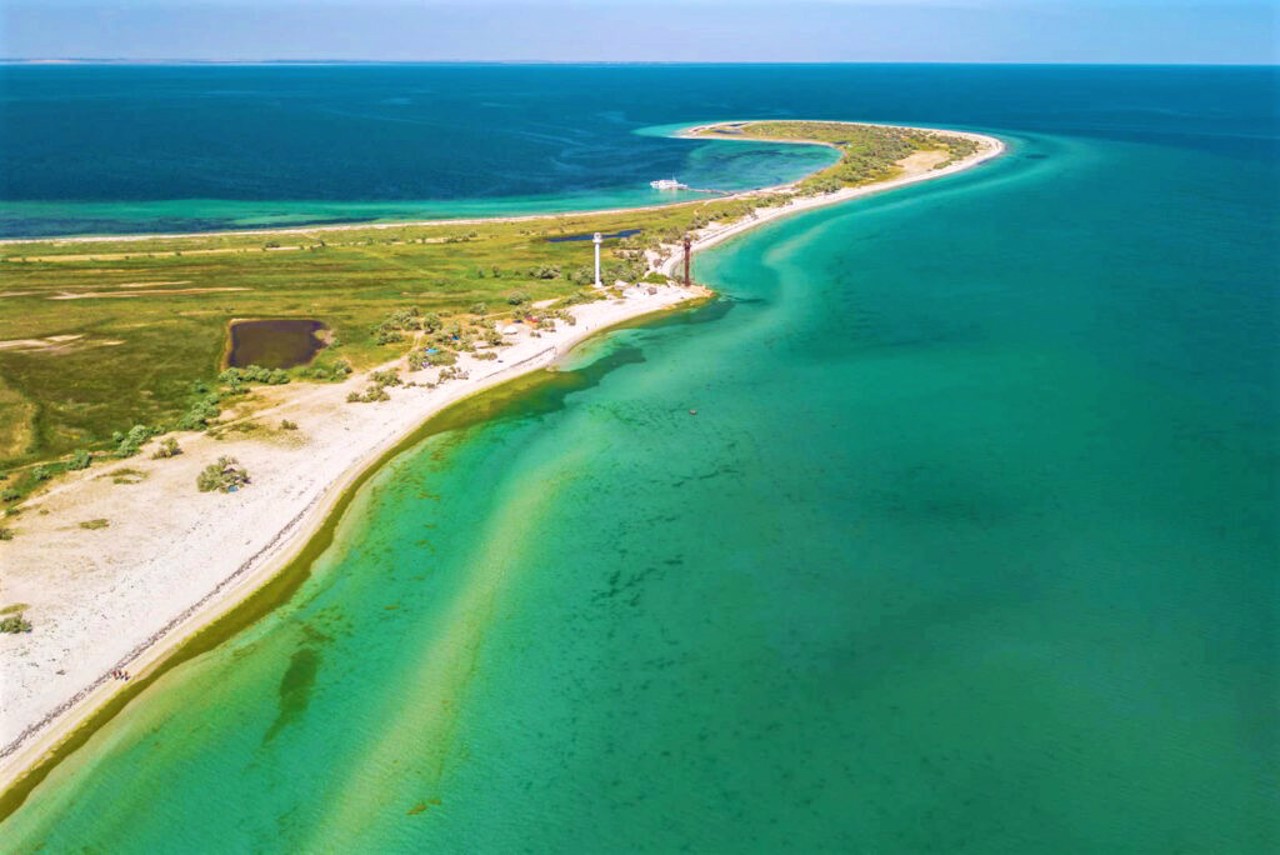A fire has been going on for almost a week on the Dzharylhach island, Kherson region, which is temporarily occupied by Russia. The fire destroyed the entire protected area of the national nature park on the territory of more than 1,500 hectares.
The director of the park, Iryna Sabashenko, told about this on Thursday, August 10, Suspilne reports.
The director noted that the fire destroyed the protected zone, where most of all the island's steppe ecosystems are concentrated. Also, there is the largest population of rare animals found on Dzharylhach, in particular ungulates.
According to Sabashenko, some plants on the island are listed in the Green Book of Ukraine and belong to rare and endangered plants.
"This is a grouping of formations of swamp sword grass, dniprovsky weed, hairy weed, Bessarabian carnation, golden bearded cicada, and others," she emphasized.
Sabashenko noted that it takes an average of 4-5 to 8-12 years to restore steppe, meadow and salt marsh areas. Tamarix thickets can recover in 15-30 years.
"We are calculating the damages, but they already amount to billions of hryvnias. The fire is still ongoing, so we do not have accurate data," said the director.
A local resident of the occupied left bank of the Kherson region told Suspilne that the fire on the island was visible from the coast of the Dzharylhach Bay 10 kilometers away, and the smoke could be observed for several days.
On August 5, the Ukrainian nature protection group reported that on the Russian-occupied island of Dzharylhach, where the national nature park of the same name is located, the most valuable steppe area has been burning for five days.
Dzharylhach island, which is located opposite the city of Skadovsk, is the largest island of Ukraine and the Black Sea. Its entire territory and part of the adjacent water area are included in the Dzharylhach National Natural Park.
Since the first days of the full-scale invasion, Dzharylhach has been under Russian occupation. The Russian military covered the isthmus between Dzharylhach Island and the occupied part of Kherson Region with sand for its military use. This threatens the ecosystem of the island and its water area. The Russian army has set up a military training ground there.
Про це у четвер, 10 серпня, розповіла директорка парку Ірина Сабашенко, повідомляє Суспільне.
Директорка зазначила, що вогнем знищена заповідна зона, де сконцентрована більша частина всіх степових екосистем острова. Також там зосереджена найбільша популяція рідкісних тварин, які є на Джарилгачі, зокрема копитних.
За словами Сабашенко, деякі рослини на острові занесені до Зеленої книги України та належать до рідкісних та рослин, що зникають.
"Це угруповання формацій меч-трави болотної, ковили дніпровської, ковили волосистої, гвоздики бессарабської, золотобородника цикадового та інші", — наголосила вона.
Сабашенко зауважила, що на відновлення степової, лугової та солончакових ділянок потрібно в середньому від 4−5 до 8−12 років. Тамариксові зарості можуть відновитися за 15−30 років.
"Збитки підраховуємо, але вже на мільярди гривень. Пожежа ще триває, тому даних точних не маємо", — сказала директорка.
Місцева жителька окупованого лівобережжя Херсонщини повідомила Суспільному, що пожежу на острові було видно з узбережжя Джарилгацької затоки за 10 кілометрів від нього, а дим можна спостерігати вже декілька днів.
5 серпня Українська природоохоронна група повідомила, що на окупованому росіянами острові Джарилгач, де розташовується однойменний національний природний парк, протягом п’яти днів горить найцінніша степова ділянка.
Острів Джарилгач, який розташований навпроти міста Скадовськ, — найбільший острів України та Чорного моря. Вся його територія та частина прилеглої акваторії входить у Джарилгацький національний природний парк.
З перших днів повномасштабного вторгнення Джарилгач перебуває під російською окупацією. Російські військові засипали перешийок між островом Джарилгач та окупованою частиною Херсонщини піском для його використання у військових цілях. Це загрожує екосистемі острова та його акваторії. Там армія РФ облаштувала військовий полігон.



